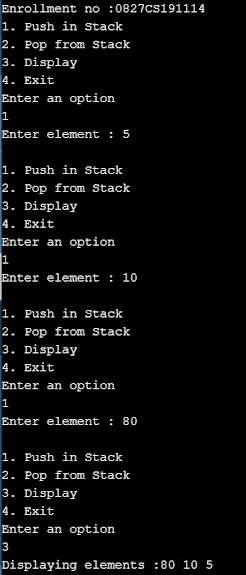New Education Policy 2020 : NEP rules, guidelines and major changes
New Education Policy 2020 : NEP rules, guidelines and major changes
The Union Cabinet on Wednesday , July 29 approves New Education Policy with the new rules , guidelines and major changes introduced in the field of education , not only for the students but for the college students . The New Education Policy had brought major changes in the Indian Education .
Union Ministers for Human Resource Development (HRD) , Information and Broadcasting (I&B) Prakash Javadekar and Ramesh Pokhriyal Nishank made announcement of New Education Policy 2020 (NEP 2020 )
New Education Policy 2020 : Changes made in School Education
- Transformation of 10+2 structure to 5+3+3+4 structure
The age group of 3-18 years has been covered in this 5+3+3+4 structure of New Education Policy 2020 where the Foundational stages include Play School and Grades 1 and 2 , Preparatory Stage from Class 3-5, Middle school from Class 6-8 and Secondary Stage from Class 9-12 - Emphasis on vocational training and practical knowledge
The students from Class 6 will be able to gain practical skills through vocational training . This has discouraged the rote learning process which used to be earlier. - Students to make their own choices for various subjects and coding introduced in class 6
The students have been given more flexibility to choose the subjects of their choice in the last 4 years of education . More emphasis on coding is now given so it is introduced from Class 6 onwards . Practical skills and vocational skills to be given more emphasis.
- Teaching in Mother Tongue upto Class 5 atleast
Now the students will get opportunity to get educated in their own mother tongue upto at least Grade 5 .
- Emphasis on Early Childhood Care and Education ( ECCE ) for ages 3 to 6
Early childhood care and emphasis on literacy is made by the New Education Policy 2020
- E-content made available for the students not only in English and Hindi but also in various 8 Regional Languages
E-content int Regional Languages like Kannada , Bengali and many more will also be available.
- Exams to be conducted in two parts - Objective and Descriptive
Exams will be conducted twice a year and in two parts objective and descriptive which will bring enhancement in the students and they will develop both the skills . - Curriculum Content to get reduced
Now the curriculum will contain major topics , key concepts , applications and ideas . More and more emphasis will be given on critical thinking . - Entrance Exams will now be conducted by NTA twice a year and will be optional and not compulsory
Common Entrance Exams will be conducted by National Testing Agency (NTA) and the exam will not be compulsory . The exam has been made optional .
- National mission to be focused more on literacy and numeracy
- Use of Technology in the education
Virtual Labs , technologically enhanced and well equipped class rooms to be introduced focusing on digital education and digitally equipping teachers and students.
- National Assessment Centre - " PARAKH " has been introduced for students
The age group of 3-18 years has been covered in this 5+3+3+4 structure of New Education Policy 2020 where the Foundational stages include Play School and Grades 1 and 2 , Preparatory Stage from Class 3-5, Middle school from Class 6-8 and Secondary Stage from Class 9-12
The students from Class 6 will be able to gain practical skills through vocational training . This has discouraged the rote learning process which used to be earlier.
The students have been given more flexibility to choose the subjects of their choice in the last 4 years of education . More emphasis on coding is now given so it is introduced from Class 6 onwards . Practical skills and vocational skills to be given more emphasis.
Now the students will get opportunity to get educated in their own mother tongue upto at least Grade 5 .
Early childhood care and emphasis on literacy is made by the New Education Policy 2020
E-content int Regional Languages like Kannada , Bengali and many more will also be available.
Exams will be conducted twice a year and in two parts objective and descriptive which will bring enhancement in the students and they will develop both the skills .
Now the curriculum will contain major topics , key concepts , applications and ideas . More and more emphasis will be given on critical thinking .
Common Entrance Exams will be conducted by National Testing Agency (NTA) and the exam will not be compulsory . The exam has been made optional .
Virtual Labs , technologically enhanced and well equipped class rooms to be introduced focusing on digital education and digitally equipping teachers and students.
New Education Policy 2020 : Changes made in Higher Education
- Higher Education Regulator replaces UGC and AICTE
Higher Education will be available to the students under the guidance of new umbrella Higher Education Commission of India or HECI. No more UGC or AICTE . UGC, AICTE and the National Council for Teacher’s Education will be merged into a single higher education commission . - The undergraduate degrees to be of 3-4 years with more than one exit options
The undergraduate degrees to be of 3-4 years with more than one exit options like a certificate will be provided after completing 1 year in a field or discipline , diploma after 2 years of education, a Bachelor’s degree after 3-years of Higher education . The more preferable programme will be a 4-year Bachelor's Degree Programme.
- On the basis status of accreditation Under Graded Autonomy , Administrative , Academic and Financial Autonomy to be given to the colleges
- Students pursuing a 4 -year Degree Programme to get better Research Opportunities
Students pursuing a 4-year Degree Programme to get Better Research Opportunities as the introduction of option of a Degree with Research if Research gets completed in the specified time or duration of study. - The National Research Foundation will be created as an apex body for a Strong Research Culture and building research capacity
The National Research Foundation (NRF) will be governed by rotating Board of Governors.
- Internationalism of education will be provided and made available which can be facilitated allowing top world - ranked Universities to open campuses in our country
- MPhil courses to be discontinued under New Education Policy
Higher Education will be available to the students under the guidance of new umbrella Higher Education Commission of India or HECI. No more UGC or AICTE . UGC, AICTE and the National Council for Teacher’s Education will be merged into a single higher education commission .
The undergraduate degrees to be of 3-4 years with more than one exit options like a certificate will be provided after completing 1 year in a field or discipline , diploma after 2 years of education, a Bachelor’s degree after 3-years of Higher education . The more preferable programme will be a 4-year Bachelor's Degree Programme.
Students pursuing a 4-year Degree Programme to get Better Research Opportunities as the introduction of option of a Degree with Research if Research gets completed in the specified time or duration of study.
The National Research Foundation (NRF) will be governed by rotating Board of Governors.
These are the major changes introduced in the field of education system through New Education Policy 2020 which has given more opportunities, flexibility to the students in the field of education . Students can study the subjects they wish and like , more emphasis on practical and vocational skills , 10+2 system will now be replaced by the new 5+3+3+4 system .
These are the new guidelines according to the New Education Policy 2020.
You can Follow for more updates and posts by clicking on AcadInfoClass12 on your mobile screen and then clicking on the button at the top left corner . Then click Follow .
Check it out.
Write your comments below to share your views on the New Education Policy 2020.












When these policies will be implemented
ReplyDeleteI think it might take an year or two to get implemented .
DeleteAside from an excellent product or service or service that your company has to offer, it is equally important to learn how to sell this product or service or service to other people. İstanbul yurtlar
ReplyDelete